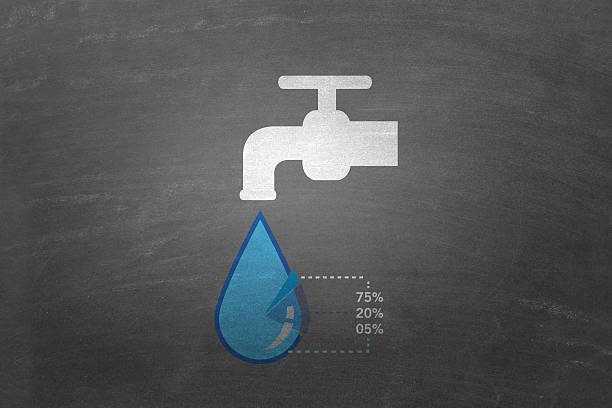Water scarcity may not feel like an immediate concern in the UK, but as climate change and rising utility costs strain resources, water efficiency is becoming a critical consideration for UK businesses. From office blocks in London to manufacturing plants in the Midlands, reducing water usage isn’t just about sustainability—it’s about long-term savings and resilience.
At Scalex Technology, we specialise in smart utility solutions that help organisations monitor, manage, and minimise resource consumption. In this blog, we’ll explore practical and innovative ways to improve water efficiency in your workplace, helping you cut costs and enhance your environmental credentials.
Why Water Efficiency Matters in the UK Workplace
With the UK Environment Agency warning that parts of England could face water shortages by 2050, the pressure is on to make meaningful reductions in water usage. For businesses, this presents an opportunity to:
- Reduce operational costs
- Enhance environmental compliance
- Improve ESG (Environmental, Social, and Governance) performance
- Future-proof operations against resource scarcity
💧 Water Consumption Calculator
Top 10 Ways to Increase Water Efficiency in the Workplace
1. Conduct a Water Audit
Start by understanding how much water your workplace currently uses. Smart metering and IoT-based monitoring—like those offered by Scalex Technology—can highlight leaks, inefficiencies, and abnormal usage patterns in real time.
2. Fix Leaks Promptly
A single leaking tap can waste up to 5,500 litres of water per year. Use leak detection technology to identify hidden leaks in pipes, toilets, or cooling systems.
3. Install Low-Flow Fixtures
Swap traditional taps and toilets for low-flow or sensor-activated fixtures to significantly reduce water consumption without affecting usability.
4. Educate Employees
Raise awareness with posters, emails, or sustainability briefings. Encourage employees to report leaks and adopt water-wise behaviours.
5. Upgrade Dishwashers and Appliances
Use water-efficient dishwashers, washing machines, and HVAC systems rated highly under the UK Water Label scheme or the Energy Saving Trust.
6. Reuse Greywater Where Possible
Consider systems that recycle greywater (e.g., from sinks or showers) for non-potable uses such as toilet flushing or landscaping.
7. Incorporate Smart Irrigation for Outdoor Spaces
If your workplace includes gardens or green spaces, smart irrigation systems that adjust based on weather forecasts can prevent overwatering and waste.
8. Implement Rainwater Harvesting
Collect rainwater from rooftops to be reused for cleaning, flushing toilets, or even irrigation. It’s a great way to reduce dependency on mains supply.
9. Install Smart Water Monitoring Systems
Scalex Technology’s smart water monitoring platforms give real-time data and automated alerts, enabling swift action and better decision-making.

10. Adopt Water-Efficient Manufacturing Processes
For industrial or manufacturing sites, investigate closed-loop water systems or technologies that reduce water needed for cooling, cleaning or processing.
UK Government Support and Regulations
The UK government supports water conservation efforts through schemes like the Enhanced Capital Allowance (ECA) for water-saving technologies. Familiarising yourself with Ofwat regulations and WaterSafe-accredited installers can help you stay compliant and efficient.
Partner with Scalex Technology to Future-Proof Your Workplace
At Scalex Technology, we offer bespoke solutions tailored to your business’s unique water usage profile. Whether it’s IoT-enabled water metering, AI-powered consumption analytics, or custom sustainability dashboards, we help UK businesses make smart decisions that save water—and money.
💧 Ready to optimise your water use?
Contact Scalex Technology today for a free consultation and discover how technology can transform your water efficiency strategy.
FAQs
Q: How much can a business save by reducing water usage?
A: UK businesses can save thousands of pounds annually through leak prevention, efficient fixtures, and smarter monitoring.
Q: Is rainwater harvesting suitable for office buildings?
A: Yes. Even in urban settings, collected rainwater can reduce mains water use for flushing and landscaping.
Q: Can smart water meters detect underground leaks?
A: Absolutely. Smart meters from Scalex Technology use real-time data to flag anomalies, often indicating hidden leaks.
